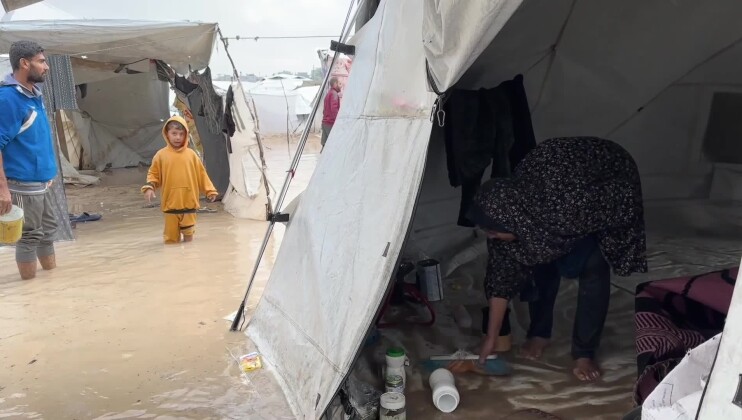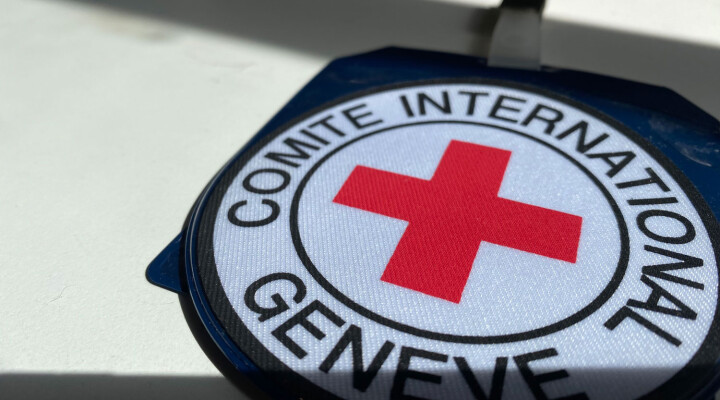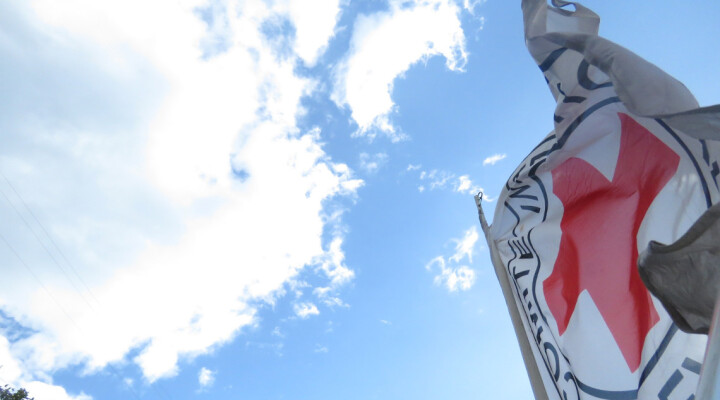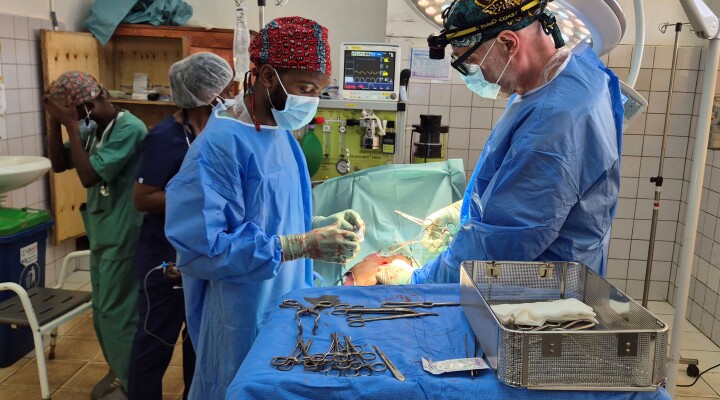Nigeria: Dire Displacement Crisis In Wake Of Escalating Violence
A surge in attacks over the last two months in Nigeria’s restive Borno state is driving a dire displacement crisis in which tens of thousands of people are seeking refuge in already over-crowded camps, where they are in need of shelter, water, food, and other basic necessities.
The Borno state capital Maiduguri is now struggling to cope with an influx of over 30,000 people seeking safety from violence. Many people are living in makeshift shelters as authorities work to open a new camp to house some of the newly displaced people.
Mohamed Liman is among them. He ran with his wife, elderly mother, and eight children, including his one-year-old son, from Cross Kauwa, a village more than 150 kilometres northeast of Maiduguri.
“We heard gunshots,” he said. “We waited for two days for it to stop. It did not, so we fled.”
They are now living in Teachers Village camp in Maiduguri underneath a patchwork shelter of sticks, straw, and worn-out clothing that barely shades the family from the relentless Borno sun.
This is the second time he and his family have lost their home to the conflict. Mohamed was first displaced in 2015 and went to live with relatives in Bichi town, Kano State. He finally moved back to his home in Cross Kauwa in 2017 where he began picking up the pieces—only to lose it all again in the most recent spate of attacks.
“I sold livestock and fish, but when you are struggling to feed yourself and you have nothing, how do you do this?” he asks. “We really want to, but we do not have the means.”
Mohamed is not alone.
Auwal Garba arrived in Teachers Village a month ago from Doron Baga. “We saw that there were no longer any soldiers in the area so we were afraid,” said Auwal. “We took our belongings and left. We slept and travelled in the bush until we reached Monguno. We spent a night in Monguno, then boarded a vehicle that brought us here.”
He too was first displaced in 2015 and was able to return home in 2017, where he received seeds and farming tools from the International Committee of the Red Cross (ICRC). He made his first crop harvest last year, but fears the next one will be lost, uncertain of if and when he will be able to go back.
In coordination with the authorities and other humanitarian actors, the ICRC is building temporary shelters for 1,500 households spread between new existing camps and plans to provide three-month food supply and cash support to families. For families like Auwal’s and Mohamed’s, this assistance cannot come soon enough.
“Our life here truthfully isn’t good,” said Auwal. “We are just sitting. We do not have accommodation. We were told we will get accommodation but are yet to receive it.”
Now in its tenth year, the conflict in north-east Nigeria has uprooted millions from their homes. The recent wave of violence has forced over 80,000 people to flee their homes to other Nigerian towns and cities and across borders into neighbouring countries.
For further information, please contact:
Zahraa Khaleel, ICRC Abuja, tel: +234 903 1515 543
Aliyu Dawobe, ICRC Abuja, tel: +234 802 8417 085
Aurelie Lachant, ICRC Geneva, tel: +41 79 244 64 05
Follow the ICRC on facebook.com/icrc and twitter.com/icrc_Africa
SHOTLIST
Location: Maiduguri, Brono State, Nigeria
Duration: 6 minutes, 02 seconds
Format: 1080p HD
Camera, production, editing: Adavize Baiye
Language: Hausa
Date: February 2019
Copyright: Rights-free
00:00–00:14 Crowd of IDPs at Teachers Village camp.
00:14–00:31 Shot of Teachers Village IDP camp from other end showing where new arrivals are settling in.
00:31–00:33 Mohamed Liman: “We heard gunshots. We waited for two days for it to stop. It did not, so we fled.”
00:33–00:40 Mohamed Liman: “We entered the camp. We were looking around then we saw our neighbour from our home town.”
00:40–00:48 Mohamed Liman: “They invited us to stay next to them.”
00:48–00:53 Mohamed Liman: “I am a trader. I sold livestock and fish.”
00:53–01:05 Mohamed Liman: “But when you are struggling to feed yourself and you have nothing, how do you do this?”
01:05–01:11 Mohamed Liman: “We really want to, but we do not have the means.”
01:11–02:18 CU of Mohamed Liman’s family.
02:18–02:26 Shot of the interview with ICRC staff.
02:26–02:40 Cutaways – Mohamed Liman hands
02:40–02:49 Exterior shot of Mohamed Liman’s shelter with the neighbours (new arrivals).
02:49–03:36 Shot of Auwal Garba cooking in the camp outside his shelter and drinking water (wide and close)
03:36–03:47 Auwal Garba seated in his shelter, ahead of the interview
03:47–03:53 Auwal Garba: “We saw that there were no longer any soldiers in the area so we were afraid,”
03:53–04:03 Auwal Garba: “We took our belongings and left. We slept and travelled in the bush until we reached Monguno.
04:03–04:08 Auwal Garba: We spent a night in Monguno, then boarded a vehicle that brought us here.”
04:08–04:11 Auwal Garba: “Our life here truthfully isn’t good.
04:11–04:19 Auwal Garba: “We are just sitting. We do not have accommodation. We were told we will get accommodation but are yet to receive it.”
04:19–6:02 Various shots of the IDP shelters being constructed at the new camp: Mohamed Goni Stadium camp.
END



